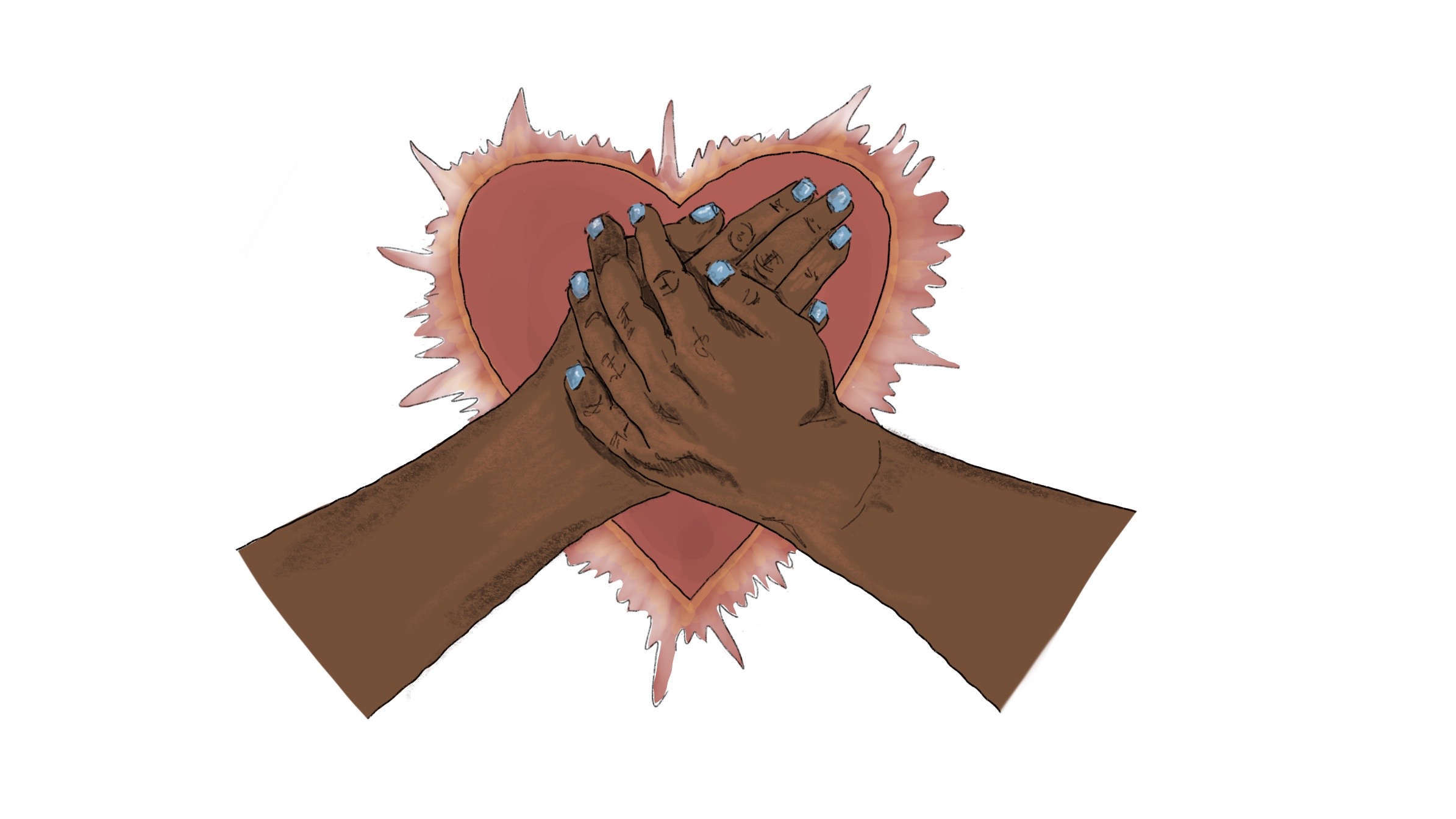To be in community is to be loved
March 5, 2021
 This
piece represents the opinion of the author
.
This
piece represents the opinion of the author
.
 Kayla Snyder
Kayla SnyderNow I know that at this point, a lot of y’all probably think I’m a negative Nancy, but I promise you I don’t always think about the ways I can personally expedite the fall of the U.S. empire in favor of liberatory systems. Most of the time, I’m thinking about which game I should play instead of doing my work, which snacks would go best together after some self-care or who I should check in on. Taking time to be alone with yourself in a world that focuses on what you are producing is quite literally a radical act. Sonya Renee Taylor—who will be the keynote speaker for Bowdoin’s HERstory month programming—advocates for a body politic that focuses on loving the self radically in an effort to remove the years of body shame that have been placed upon us by outside influences.
While I was in Ghana, I was fortunate enough to be in an abroad program filled with queer Black people like myself who were in search of something that our Predominantly White Institutions (PWIs) could never give us. Unable to name it at the time, I knew that us coming together was something that was destined to happen. To this day, I consider many of them my family.
Chosen families are formed often; regardless of what you look like or where you come from, you are connected to these people seemingly by chance—yet it also feels as if you have known them for a lifetime. Forming these bonds and building trust within a group is difficult, but it is required in order to establish long-lasting connections. Being surrounded by people who not only embraced my quirks but encouraged them, and in turn showed me theirs, I was able to unlearn so many thoughts that I hadn’t even realized I had internalized.
In her ethnography, “Shapeshifters: Black Girls and the Choreography of Citizenship,” Aimee Meredith Cox writes about how young, low-income Black girls “use [their] displacement as a starting point for regeneration and the creation of new lifeworlds and spaces that affirm our collective humanity.” For most Black non-men (I recognize this is a reductive term, but I use it here in an attempt to encompass all people who are Black and gender oppressed), the identities we hold—both visible and invisible—cause us to be perceived in very specific ways, regardless of who we believe and know ourselves to be. These perceptions, when made by people who hold more social and economic capital, are often devoid of any compassion but rather rely on stereotypes and limited experiences with those who share similar identities to us.
To combat this, it is crucial that we either find a community to join or build one ourselves. At a time where more and more people are not just alone but also experiencing deep loneliness, at a time where safe spaces must be gatekept to protect those within, at a time where accountability and reconciliation are mistaken for “cancel culture,” it is more important, now than ever, that we form communities of care and compassion for one another.
Now, I’m not saying you must form communities with just anyone; I, for one, am not in the business of being in communal spaces with cisgender, heterosexual men because a lot of y’all don’t even want to be in community with one another. Imagine if cishet men held each other accountable the way they expect their mothers, sisters and non-men friends to hold them accountable and educate them? Imagine if developing radical self love extended to your bros? It can be hard to be vulnerable and allow yourself to cry in the presence of others, but it is necessary for true bonds to form.
I, for one, do my best to avoid spaces where I know there will be a lot of men, because from my own past experiences, it ends up with a lot of them talking over each other to deliver the same point that a woman made five minutes before. If being in community with men is your calling, then it is your duty to make sure that you hold each other to higher standards of being and doing. How can you call someone your friend if you know they are a repeat abuser? What does it mean to be in community with someone who you have heard has caused harm and not check them on it? I am not asking these questions facetiously; I want us all to do better within our smaller communities so we can push forward the change we so desperately need at the macro level.
Communal spaces are integral to figuring out what you will and won’t stand for. I have found so much peace, healing and self-reflection by allowing myself to be in community with people who love me as much as I love them. Showing up matters. Listening matters. Call-ins matter. Because the way I see it, the government has abandoned us and left us no choice but to turn to one another for financial and physical support. I am not suggesting it will be easy to form communities of care—that takes time and trust. But by allowing yourself to be vulnerable and exude the love you desire, I assure you that you will be rewarded enormously for your efforts. I know I was.

Comments
Before submitting a comment, please review our comment policy. Some key points from the policy: